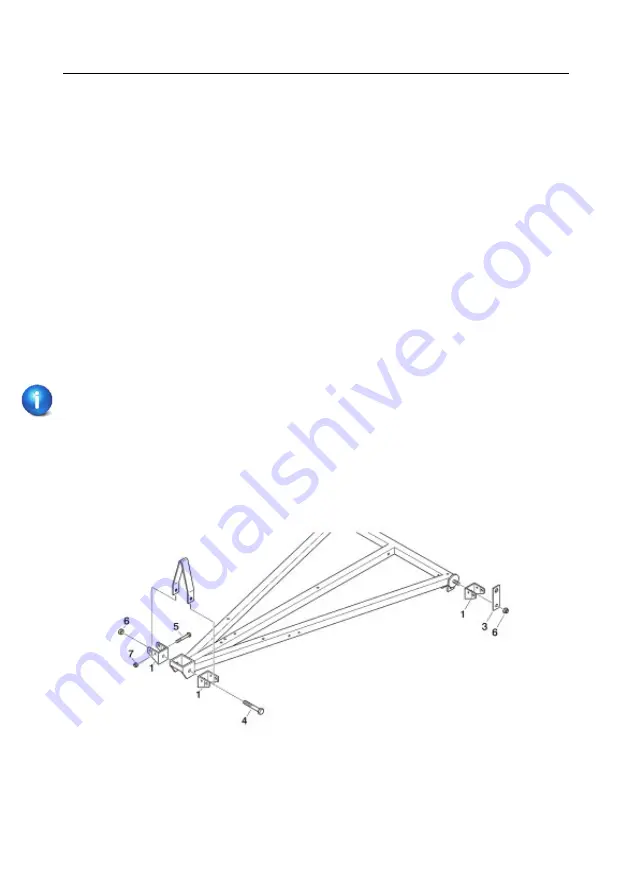
POH LTF-UL-2019 C42B Issue 1 • Pilot Operating Handbook
POH LTF-UL-2019 C42B Issue 1
Page 20 of 84
8
Ground handling
8.1
Shunting
Manual moving of the aircraft is accomplished by using the tail struts upper
connections as push points. Since there is no tow bar applicable at the nose
gear, you have to press down the tail to raise the nose wheel off the ground.
With the nose wheel clear of ground, the aircraft can be simply steered by
pivoting it on the main wheels.
8.2
Hanging-up
This equipment is optional.
The aircraft may be lifted with a hoist of at least 1100 lb (0.5 tons) capacity
by using T-support ceiling hangers
.
Use suitable spring snap hooks for the three designated mounting points on
the cabin roof.
Figure 3: Suspension points on the roof frame














































